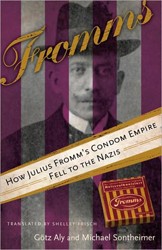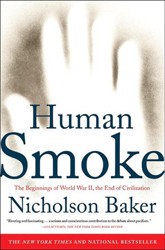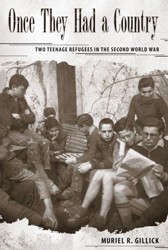Nicholas Stargardt, a professor of modern European history at Oxford’s Magdalen College, presents an important contribution to the study of what ordinary Germans believed they were fighting for during World War II and why they continued to show their loyalty long after it was apparent that Germany would lose the war, as well as what motivated the Wehrmacht and Einsatzgruppen to murder Jews during the Holocaust.
In The German War, Stargardt contends that German soldiers fighting in the East were primarily motivated to kill Jews because they believed in Hitler as a savior who would deliver Germany from the threat of Judeo-Bolshevism. Nazi propaganda persuaded German citizens and soldiers that Jews were behind the humiliating surrender to the Allies in November 1918, and framed the war as revenge against the “perfidious Jews” who betrayed Germany. Above all, whether soldiers were Nazi, anti-Nazi, or simply without a political conviction, they were guided by patriotism to Germany. Even if they were horrified by the murder of their victims, duty to the nation trumped their conscience.
Drawing on a wealth of firsthand testimony including personal diaries, court records, and military correspondence, Stargardt describes not only German civilian experience of the war but their reaction to news about the murder of the Jews following the Nazi invasion of the Soviet Union. The controversy over how much the German people know about what was happening to the Jews in Eastern Europe persists, but Stargardt asserts that awareness was widespread: letters from the warfront, returning wounded soldiers, and even camera photos of the Jewish dead made its way into Germany’s public domain. The German civilian response to the intense bombing of German cities between 1941 and 1944 was viewed as a retaliation by both the United States and Great Britain for the Nazi murder of the Jews. Ironically, Germans who survived these bombings compared themselves as victims, comparing their suffering to that of the Jews.
The German War is an important book which, to the best of my knowledge, answers many of questions that historians have asked, namely: how did a civilized society like Germany become a nation condoning genocide under Hitler?
Related Content:





